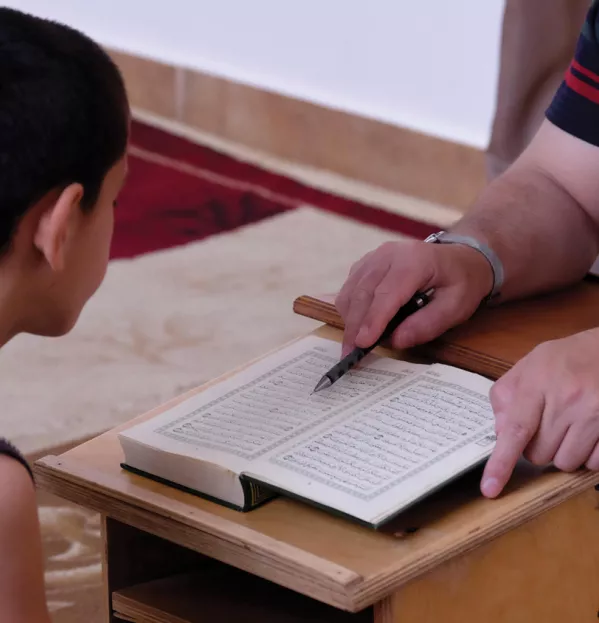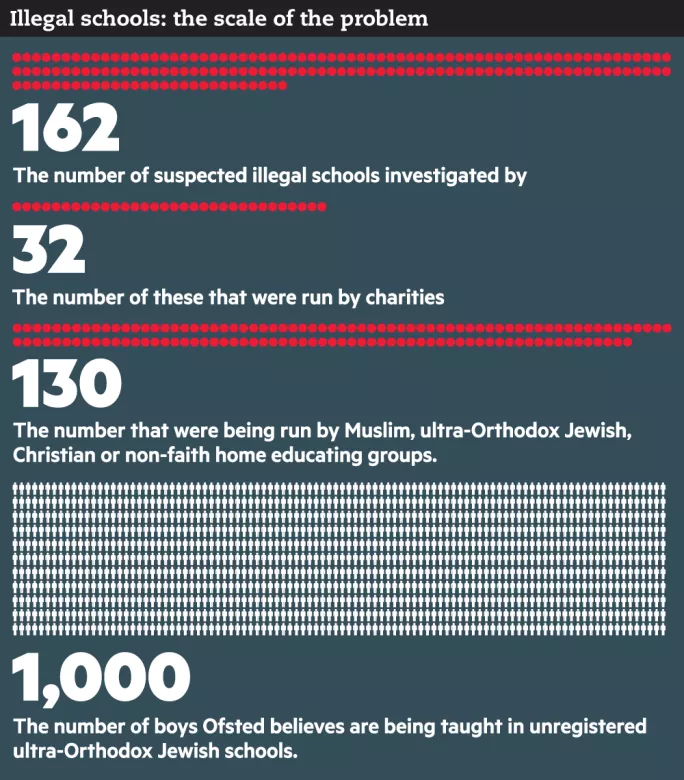Illegal schools need to be dealt with, ministers told

New powers are needed to allow councils to intervene in illegal schools and protect vulnerable pupils, according to the man ministers have appointed to rethink local authorities’ role in education.
Alan Wood is not due to start his Department for Education review into the future of local government in education until the new year.
But in an exclusive interview with TES, he revealed that he was already of the opinion that radical changes were needed to safeguard pupils outside mainstream schools who could be learning in unsafe and unhygienic environments.
Mr Wood said the issue of illegal and unregistered schools was one that was “growing and will not go away unless it’s dealt with”.
And he warned that there was “clearly room for bringing in new arrangements” to allow councils to find out what was happening to children being taught outside school.
“I certainly don’t think we can continue on without clear guidance as to how local authorities can ascertain what’s happening to children,” Mr Wood told TES. “If someone can say, ‘I am home-educating this child’, they are under no obligation to tell you any more than that or to comply with any of the questions of work or where the education takes place. There is no requirement for people to give you that information.”
‘Bizarre’ oversight
Mr Wood’s call for change comes in the same week that Ofsted chief inspector Sir Michael Wilshaw said it was “bizarre” local authorities had “absolutely no powers” to find out what was happening to children not in school.
On Tuesday, the BBC reported that Ofsted had uncovered an illegal unregistered alternative provision centre, which was being paid £25,000 of public money for every young person it took on.
Sir Michael said he feared people were “lining their pockets” looking after vulnerable and excluded children.
Local authorities have a statutory duty to ensure all children get a suitable education. But for children educated outside school, their powers are limited - officials may enter premises only if they have specific concerns about a child’s safety.

Mr Wood, formerly chief executive of the Hackney Learning Trust, said that councils needed more clarity, because the range of education provided to children who weren’t at school was “very extensive”.
“It’s home education, it’s unregistered settings, it’s alternative provision,” he said. “There is a lot going on, and local authorities cannot and do not have the power to find out what is going on for a very, very small number of children in each area.
“But when you add up those small numbers of children across the country, it [is] a significant number of young people. There is clearly room for bringing in new arrangements, my personal view is it shouldn’t be too difficult.”
Ofsted has repeatedly warned of the growing numbers of children being taught in illegal schools, which can pose risks such as unsafe and unhygienic premises.
Mary Bousted, general secretary of the ATL teaching union, said that academisation meant more children fell through the cracks into illegal schools. “How can local authorities take responsibility for all children if they can’t get the numbers excluded from academies?” she said.
In a letter to Nicky Morgan - then education secretary - in May, Sir Michael also raised concerns that some children were at “significant risk of harm or indoctrination”.
Ofsted inspectors visited 162 suspected illegal schools last year. The watchdog said that it had particular concerns about provision in London, Birmingham, Luton, Wolverhampton and Staffordshire.
‘We need robust systems to ensure that all young people are in secure, safe educational establishments’
The Local Government Association (LGA) has called for councils to be handed powers to enter people’s homes if they decide to home educate their children.
In September, Richard Watts, chair of the LGA’s Children and Young People Board, said that children listed as home-schooled were at risk of attending an illegal school. “With limited powers to check on the work a child is doing, however, councils are unable to find out whether this is the case,” he said.
But Malcolm Trobe, interim general secretary of the Association of School and College Leaders, questioned whether councils had the capacity to take on such a responsibility.
“What is clear is that there do need to be robust systems in place to ensure that all young people are in secure, safe educational establishments,” he said. “There does need to be a review of the systems that are in place.”
A DfE spokesperson said: “Unregistered schools are illegal and unsafe. We have given Ofsted additional resources to root them out and take action through the courts.
“Where children are being put at risk or not receiving a suitable education, local authorities and police have clear powers to intervene.”
You need a Tes subscription to read this article
Subscribe now to read this article and get other subscriber-only content:
- Unlimited access to all Tes magazine content
- Exclusive subscriber-only stories
- Award-winning email newsletters
Already a subscriber? Log in
You need a subscription to read this article
Subscribe now to read this article and get other subscriber-only content, including:
- Unlimited access to all Tes magazine content
- Exclusive subscriber-only stories
- Award-winning email newsletters